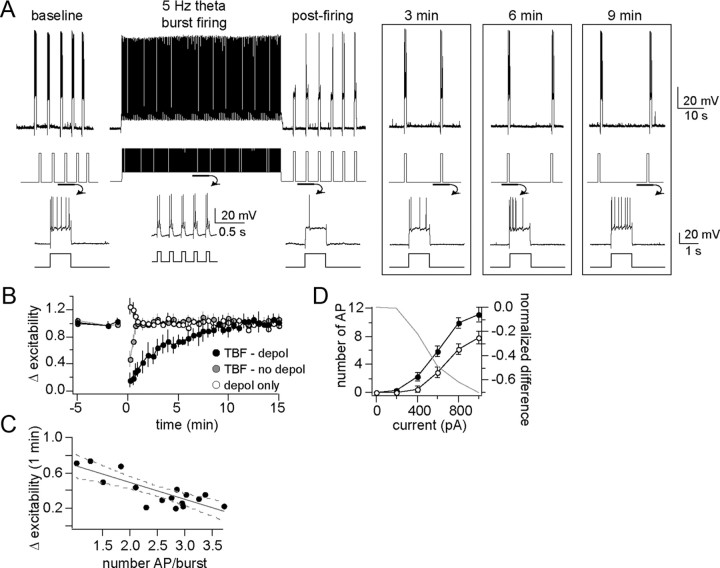Figure 2.
Theta burst firing activity causes a decrease of membrane excitability. A, In our protocol to examine the effects of neuronal firing on excitability, membrane excitability is measured before and after theta burst firing for several minutes (top, voltage trace with current trace underneath depicting a typical experiment; bottom, voltage and current traces enlarged to display the number of action potentials evoked by current steps). B, The decrease of membrane excitability caused by TBF lasted >5 min (black circle, TBF - depol), while depolarization alone (white circle, depol only) or TBF without depolarization (gray circle, TBF – no depol) did not cause a prolonged change of excitability. C, There was a correlation between the average number of action potentials evoked per burst and the degree of change in excitability. D, Membrane excitability was still found to be decreased after TBF when measured from a complete input–output curve of the membrane excitability in response to a range of current step amplitude in a subsample of neurons (right; gray line represents the difference between baseline and post-TBF excitability).

